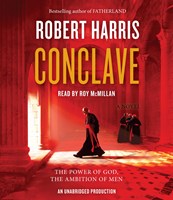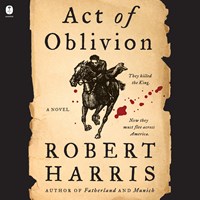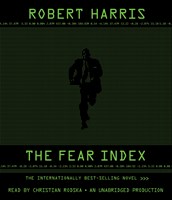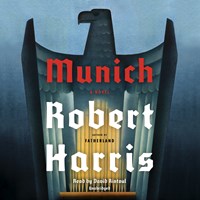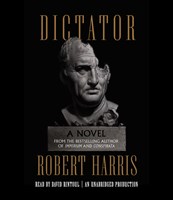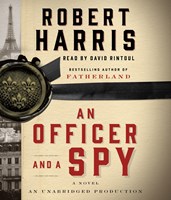Get our Newsletter
-
- Reviews
- Narrators
-
Features
- Audiobook ClubStart a conversation with your book club
- Best Audiobooks2023 Best Audiobooks
- ArticlesDiscover the diverse voices of audiobooks
- NarratorsSpotlight on popular narrators
- AuthorsAuthors talking about their audiobooks
- Upcoming TitlesFind upcoming audiobook release announcements
- Kids and TeensListening selections for kids & teens with age levels
- Audie Awards 2024 Audie Awards
- Subscribe
- About
- Articles
Talking with Robert Harris
When one thinks of ancient Rome, one tends to think of gladiators facing off against wild beasts. But as Robert Harris reminds us in his new historical novel, IMPERIUM , Rome in 1st century B.C. was a hotbed of devious politicians facing off against each other. They may have had names such as Pompey, Caesar, and Marcus Cicero, but their intrigues are familiar to anyone who reads today’s headlines. In IMPERIUM, Harris brings to life the rise of famed orator Cicero and his battle against corrupt politicians, including Julius Caesar.
“Every generation thinks it has invented the world anew. But most of the problems that we face were in existence thousands of years ago,” says Harris, who watches current events and writes about ancient ones from his home in Berkshire, England. Harris’s protagonist, as well, spans the ages. “I tried whenever possible to use Cicero’s actual speeches, as they are still very effective. He was a lawyer, and the relationship between the law courts and politics was extremely modern. It’s not what one associates with ancient history at all.” The speeches may resonate particularly with American readers, says Harris. “The Founding Fathers were very influenced by Cicero. A lot of his words were copied in the Declaration of Independence and the Constitution.”
As he did for his previous bestseller, POMPEII , Harris conducted two years of research before writing IMPERIUM. “The key is to know 50 pounds more than you’ll ever need to write the book,” he explains, adding that readers can always tell when a book has been “scantily researched.”
“The author is mildly anxious about it and, therefore, needs to show you how much research has been done. I try to play it down. My aim is to know enough to write from the same knowledge base as someone of two thousand years ago.” No mean feat. Suffice it to say that his model is the memoir that a chief of staff to the President might have written. “Such a person wouldn’t write, ‘We went to Washington, a large city on the Potomac River.’ He would assume his readers knew where Washington was.”
Harris, who finds ancient Rome “a very congenial place to be,” likes to listen to audiobook versions of Virgil and Homer when driving. He has heard the BBC Radio production of IMPERIUM and says with evident pleasure that a novel filled with oratory “was made to be spoken aloud by actors.” He is just as delighted with the two audiobook versions. In fact, he recommended Oliver Ford Davies to read the abridgment. “He has a wonderful, sympathetic voice.” He adds with evident relish, “I believe that this is the first audiobook he’s done, but I don’t think it’ll be the last.”
An author who casts his own audiobook narrator--whatever next? For Harris and his many readers, happily ensconced in ancient Rome, it’s a sequel. Cicero’s persecution of Catalina, his continued battle with Julius Caesar, his Greek exile--modern politics pale in comparison, which may be some sort of comfort.--Aurelia C. Scott
FEB/MAR 07
© AudioFile 2007, Portland, Maine
Photo by Jost Hindersmann
The latest audiobook reviews, right in your inbox.
Get our FREE Newsletter and discover a world of audiobooks.






